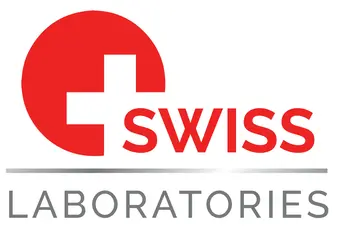- Home
- Treatments
- Orthopedics
Orthopedics
The most common symptom of aging and life is lower back and joint pain. Our joints receive their fair share of wear and tear with time.
Stem cells have been shown and proven to not only regrow cartilage, bone and ligaments they have been helpful in improving blood flow and nerve function to relieve pain in the back, knees and hips.
Mesenchymal Stem Cells are Safe for Orthopedic Use
In this metanalysis of 582 patients - MSC transplantation treatment was shown to be safe and has excellent potential as an efficacious clinical therapy for patients with knee OA.
https://journals.plos.org/plosone/article?id=10.1371/journal.pone.0175449
MSC.s are safe for back injuries. In 2015 a study identified intradiscal MSC transplantation as a safe and effective way to address the underlying cause of disk pathology (Wenchun Qu Mayo Clinic Rochester, NY)
Mesenchymal Stem Cells are capable of regenerating cartilage.
Mesenchymal are capable of regenerating tissue in the joints of the patient. In one study, mesenchymal stem cells (MSCs) control host cell behavior via paracrine effects and operate as building blocks for the creation of repair tissue. (Murphy JM et al., Arthritis Rheum. 2003 Dec)
Chondrocytes are the cells responsible for cartilage formation. Although chondrocyte apoptosis (death) has been associated with degenerative osteoarthritis for many years, evidence suggests that secreted factors from MSCs inhibited the IL-1β-induced death of chondrocytes. (Liu Y. et al. Biochem. J. 475). This concept is significant as it indicates that MSCs could be used to slow the progression of degenerative orthopedic conditions.
Another study demonstrates the ability of MSCs to survive and assume a chondrocyte-like phenotype when injected. This study proves that MSCs can regenerate cartilage. (D. Greg Anderson, et.al., Am J Phys Med Rehabil May 2013)
Mesenchymal Stem Cells are capable of reducing inflammation and joint pain.
Inflammatory arthritis describes conditions characterized by pain, swelling, tenderness, and warmth in the joints, as well as morning stiffness lasting more than an hour. The most common forms are rheumatoid arthritis (RA), psoriatic arthritis (PsA), systemic lupus erythematosus (SLE, lupus), gout, and ankylosing spondylitis (AS).
The immune system doesn't work correctly with these diseases and releases inflammatory chemicals, which attack joint tissues and can cause joint swelling, increased joint fluid, cartilage and bone damage, and muscle loss. Nerves in the joints are also activated, causing pain. In addition, the inflammatory chemicals may directly activate other nerves of the body and can lead to pain.
Biological markers of inflammation positively correlate with knee pain. In a study on joint inflammation, an MSC-conditioned medium (CM) decreased the production of inflammatory mediators in the OA joint. (Van Buul GM et al. Osteoarthritis Cartilage. 2012 Oct). For the patient suffering from chronic John
Back Pain
Intervertebral disc degeneration is a leading cause of back pain. Clinical outcomes indicated that MSC transplantation is a good alternative for treating chronic discogenic low back pain. (Pang X., et. al. Pain Physician 2014 Jul-Aug) It is excellent news for patients suffering from chronic back pain.
Orthopedic Related Nerve Damage
There are few treatment options for patients who sustain nerve damage from orthopedic injuries. Recovery from peripheral nerve injury is generally poor because of the low regeneration rate of axons and intra- and extra neural scar tissue development. MSCs can be transplanted into denervated muscles, avoiding the predictable sequelae of denervation. Specifically by the prevention of atrophy and by leaving the tissue more reinnervation-receptive over extended periods. (Fairbairn NG et al. World J Stem Cells. 2015 Jan)
Additionally, we obtained promising results following MSC implantation into peripheral nerve injuries—not just in acute injuries but also in chronically denervated lesions. (Fairbairn NG et al. World J Stem Cells. 2015 Jan) For patients who have lost neural function from orthopedic injuries, MSCs can provide a promising treatment alternative.
